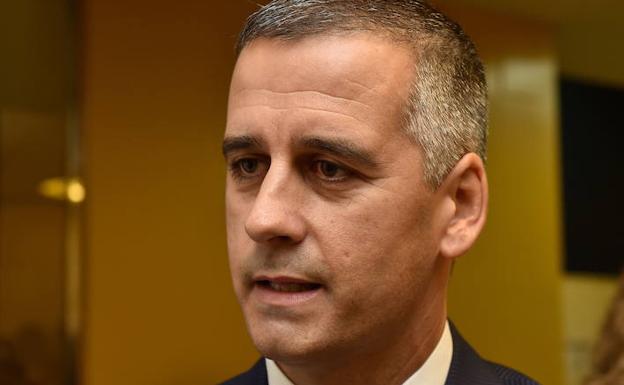With Enrique Lorca, EFA President, we talk about the difficult situation of driving exams in Spain and how technology is changing mobility.
The lockdown measures introduced to avoid the spread of COVID-19 have generated economic problems across Europe. Driving Schools have now re-opened, but they are still experiencing difficult trading conditions due to the delays in exam availability. The situation is difficult in much of Europe. How is it going in Spain? How are you managing the training of your students?
The situation in Spain is very delicate and worrying. COVID-19 has accentuated the problem of the lack of examiners. This issue already existed before COVID 19.
During the pandemic driving schools were closed from March 13th until Phase 2 (May 25th) when we returned to something like normal life, activity was limited because the administration (DGT) was working at only 50% of its capacity for health reasons (families who look after elderly people, parents with small children … and also holidays).
All this has generated a chaotic situation. Around 300,000 students have passed the theoretical test and many of them are having to wait a long time to be examined for the practical test. The post COVID lockdown has coincided with summertime, when a lot of students try to obtain a driving licence, so the exam system has almost collapsed.
Driving schools are facing the post lockdown situation with great diligence and care for both student and employee safety.
Social distancing measures (1.5 m), use of a mask, alcoholic gels and limited capacity have been implemented in theory classrooms.
In practical classes and exams, teachers and students must wear masks inside the car. The car is cleaned and disinfected before and after each lesson. Some driving schools use sterile gloves for their students even though it is not mandatory.
The practical exams are carried out with only 1 candidate, in addition to the teacher and examiner, inside the car.

In Europe, because of the delays accumulated from the COVID-19 lock down, and many examiners retiring, the situation is becoming unsustainable. EFA is proposing a training model for Europe that takes these needs into account and wants to enhance the role of driving schools in Europe. Less waiting times, faster driving exams and training aimed at greater driving awareness, not just passing an exam. Can you tell us something about it?
Clearly, the exam system needs an update.
Now we can prove that when a part of the system fails the exam process collapses.
Driving schools play a particularly important role for road safety in Europe.
The training model proposed by EFA is based on the concept that skills, awareness and knowledge are needed to obtain a driving licence. We passionately believe that the topics of awareness and skills (in theory and in practice) must be taught by driving schools. These topics can be certified with tools that evaluate the presence of students, without necessarily passing an exam. We need thinking drivers, not people with heads full of rules. We are sure that with face to face lessons, without fear of an examination, they can learn more. Knowledge subjects, on the other hand, will surely have to be evaluated with an exam. Thanks to the technology available to everyone, today we can check the attendance of students without spending a lot of money. This system could also speed up and simplify the work of examiners, thus speeding up the current times waiting for exams. The Portuguese model in this sense is already bearing positive results.
In Europe, around eighty percent of drivers obtained their driving license at least 20 years ago. Do you think that there should be a form of periodic updating of drivers, in the form of lifelong learning? Many of the current drivers have no idea how ADAS works in vehicles.
The Highway Code always changes, and a lot of rules are forgotten. The skills of the driver suffer over the years, and technology changes rapidly therefore we can see that today’s drivers need refresher training and to be taught how to properly use the technology available (ADAS) in their cars. They do not know how to program cruise control properly; they fear lane control systems and autonomous emergency braking. As well as failing to understand fuel consumption issues with the new engines hybrid and electric vehicles, the intricacies of recharging systems, and how to drive responsibly in a “silent” vehicle”.
We must not forget the awareness of drivers, many of them over the years adopt an unsafe driving style and before having an accident or committing a violation training should be given to all drivers after they have obtained a driving license. A lifelong learning process is needed, and it would improve road safety.
E-scooters are literally invading our cities. We are all in favour of more sustainable mobility, but perhaps we need very precise regulations for these “vehicles”. Apart from the lanes reserved for them, do you think that vehicle registration, compulsory insurance and adequate training for their drivers is necessary?
It is true that cities are redesigning their mobility systems. City managers everywhere are trying to reduce or eliminate private traffic from town centres. The e-scooter is a vehicle that circulates on the streets, for this reason a standards regulation is needed. It is easy to lose control of these vehicles. The need for protection for their users is real: the use of a helmet should be considered essential. These vehicles interact with pedestrians, cyclists and other motor vehicles (buses, cars, vans etc.) so they can cause damage. We believe that insurance should be mandatory, if not for the vehicle, at least for the driver who can put all other road users at risk.
It is a new mobility, we need to regulate it and make it safe, healthy and sustainable, training should be given to minimise risks. Currently there are many accidents with injuries and even fatalities.






